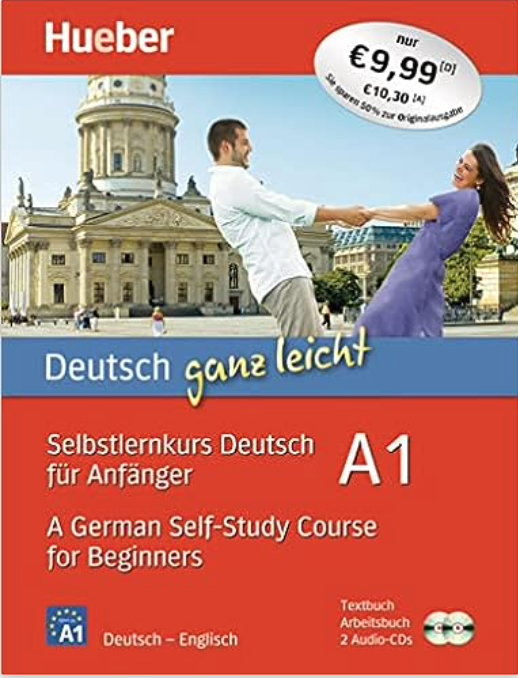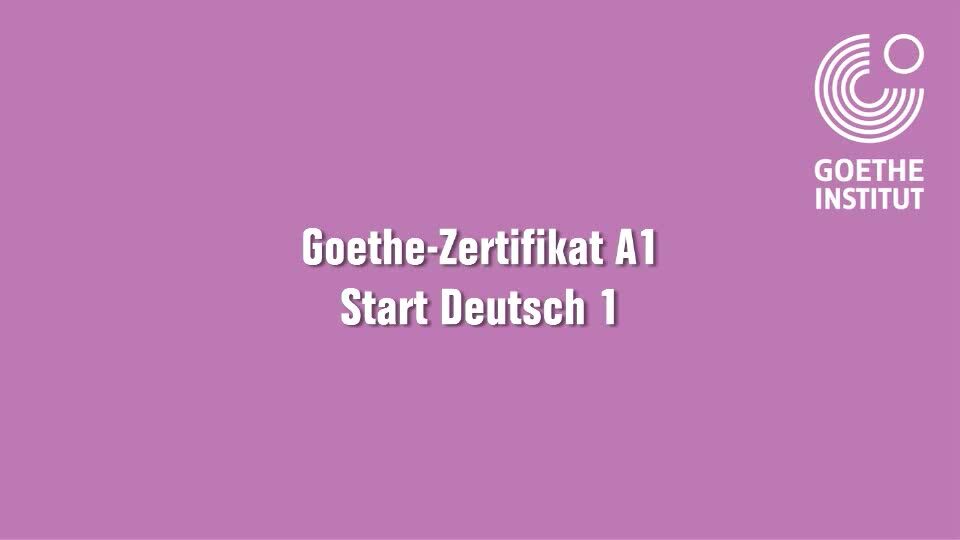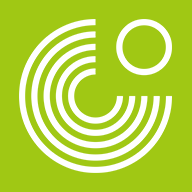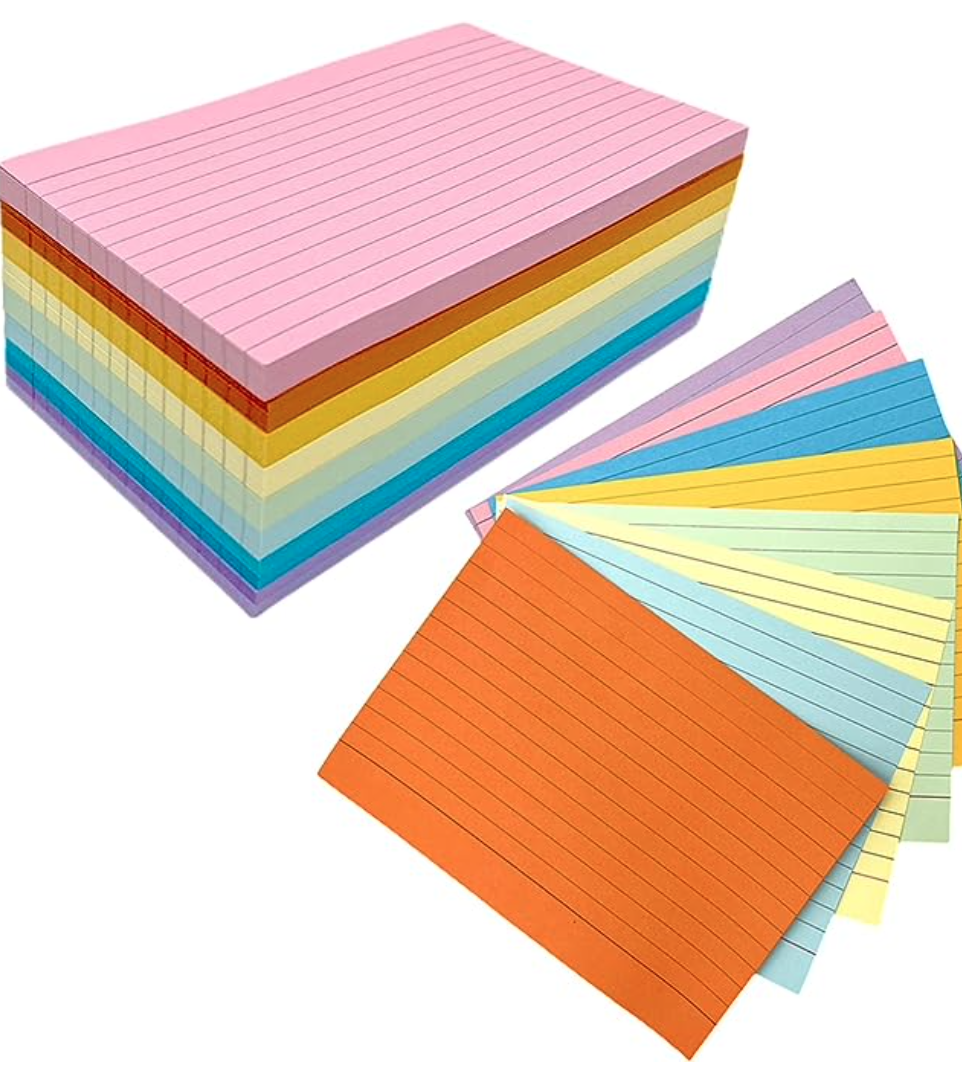How to pass the Goethe-Institut's A1 German exam in 2 months (+ FREE study materials)

Disclosure: Some of the links included in this blog post are affiliate links, meaning, at no additional cost to you, I will earn a commission for purchases made through links in this post. However, please note I only recommend products that I have verified and/or personally used.
At the beginning of last year (2022), I spontaneously booked the Goethe-Institut's A1 German exam. I'd never previously studied the German language, so it's safe to say this was quite a big challenge for me and on top of that, at the time of booking I had only given myself 2 months to study. It's also worth noting that I am absolutely terrible at picking up languages, someone can say something to me in German and when I go to repeat the same word, it comes out completely differently... picture Joey from friends.

Nevertheless, I LOVE a good challenge so after putting in 2 months of solid studying, I went on to pass the A1 German Exam with 74/100 (you need 60% to pass). I was extremely pleased with this mark and trust me when I say if I can pass it, anyone can!!
In this blog post, I'm going to focus on the exact resources and just some general tips, which helped me pass my German A1 Exam. If you want more insight into the Goethe Institut's A1 German Exam, then you'll want to go check out my previous blog post, which covers the exam in detail (just click this link).
This blog post covers:
- How much do I need to know for A1 German?
- How long does it take to study for the A1 German exam?
- How many hours per day should I study?
- Should I self-study for the exam or enroll onto a Goethe-Institut course?
- How did I manage to pass the A1 German exam in two months?
- Tips for studying and passing the A1 German exam
- Next steps
- All the resources I used for studying
How much do I need to know for A1 German?
For the A1 German CEFR level, you'll need to obtain a basic understanding of the German language. However, that doesn't mean it's going to be easy! In the A1 German exam, you will be tested on all aspects of the language including listening, speaking, reading and writing. Therefore, you'll need to learn a lot of information to pass this level... you'll need to know approximately 700 German words, you'll need to be able to construct and understand basic questions, sentences and common expressions and you'll need to know how to introduce yourself and communicate in a simple manner when the other person is talking slowly and clearly.
How long does it take to study for the A1 German exam?
It is supposed to take anywhere between 60-120 hours to study for the A1 German exam. Let's take 90 hours as the average time, this would mean that if you did 1 hour of studying per day, it would take approximately 3 months to study the A1 course.
However, with that being said, this is a really subjective question and it very much comes down to each individual. There are so many factors which can impact the answer to this question. For example, it will take you less time to study for the A1 German exam if you already know parts of the German language, or if you already know another language, or if you are generally quite good at picking up new languages. However, if you can't relate to any of this, then it will probably take you longer to study for the A1 German exam. So, you need to take all these factors into consideration and work out how long you think it would take you to pass.

How many hours per day should I study?
I would suggest an hour of studying per day. It's the perfect balance between learning a decent amount of German but also, not over doing it and getting burnt out by how much studying you are doing. An hour of studying per day is also ideal if your exam is over 3 months away. If you have less than 3 months, then you will need to increase the amount of hours you study per day.
Should I self-study for the exam or enroll onto a Goethe-Institut course?
It's entirely up to you whether you want to self-study for the exam or enroll onto a Goethe-Institut course. There are pros and cons with each option as you can see in the pictures below. The major difference and deciding factor I found between these two options was the cost. The Goethe-Institut's courses are very expensive but they also provide you with a well-rounded, comprehensive and supportive learning environment and overall, it's more likely that you'll walk away with a better understanding of the German language than if you self-study.

If you do choose to self-study, there are some fantastic resources and tutors out there, which will help you on your A1 German learning journey. Not to mention, self-studying is a much cheaper option.
VS

If you want to enroll onto a Goethe-Institut courses, they offer a range of options which are either fully online or blended learning. You can choose to study the full A1 German syllabus through their superintensive 5-week course, which costs £995 or they also offer the A1 German syllabus in three sections (A1.1, A1.2 and A1.3). Each section takes either 5 weeks or 10 weeks to complete and will cost anywhere between £299-£399 to study. This would mean if you chose to study all three sections of the A1 syllabus, it would take a total of 15-30 weeks to complete and it would cost a total of £897-1197.
If you study a course with the Goethe-Institut, you will also get your A1 German exam for £85 instead of £115. However, to qualify for this cheaper price, you need to have sat the exam within 6 months of finishing your course.
How did I manage to pass the A1 German exam in two months?
I chose to self-study for my A1 German exam and used a variety of resources, including an A1 German textbook, Duolingo, watched YouTube videos, did practice tests, studied and made flashcards of the whole A1 wordlist, wrote and learned my introduction for the speaking part, I listened to German podcasts in the background and then, about a month before the exam, I took 7 lessons with a tutor on PrePly. I'll link all my resources down below, but I found the combination of all these recourses to be extremely useful. In particular, the A1 textbook I found helped me tremendously allowing me to learn the sentence structure, modal verbs and vocabulary and it wasn't at all boring like some textbooks! Also, my tutor was really helpful to learn how to communicate in German. I also made myself a study timetable and ensured I put in between 3 hours studying most days, but I really wouldn't recommend doing this amount as it started to feel a bit like a chore.
All the resources I used are linked at the bottom of this blog post!
Tips for studying and passing the A1 German exam
- Create an immersive German environment. Even when you aren't studying for the German exam, put a German podcast or video on in the background. This is so you can start to get accustomed to the sound of the German language and it will really help you for the listening section of the exam. You'll start to notice that you can pick out words, even if its just one word that shows progress!
- Vocabulary is so important! As mentioned previously, there is approximately 700 words you need to learn. You can't skip this part, even if you have learned sentence structure and grammar, it won't do anything if you don't know what any of the words mean. I made flashcards of the full A1 German wordlist and just kept going over them and over them.
- Practice, practice, practice! There's no two ways about it. You will need to ensure you make a commitment to study the German language. You'll also need to use a variety of methods to ensure you are studying for every section of the exam. For example, I really liked the textbook I used but it didn't help with the speaking part so I needed to get a tutor who I could speak German with and help me practice that. Also, do practice exams and practice your speaking introduction too!!
- Make sure you know the format for the exam, especially how long you get for each section of the exam and how many times you get to hear each audio for the listening section as you don't want to be caught off guard in the exam.
- Every noun in German has a gender. Make sure that you learn these words with their corresponding genders ('der', 'die', 'das'). This will be so useful in the future when you progress to A2 German and so on.
Next steps
If you failed your A1 German exam...
- Try not be disheartened, the A1 German exam is far from easy in my opinion. Just rebook it for when you're ready!
If you passed the A1 German exam...
- If you want to continue your German learning journey, why not enroll for the A2 exam? This is what I've done!
- Maybe you just needed your A1 German qualification to support your VISA application and you won't continue sitting the formal Goethe-Institut exams and if that is the case, congratulations on passing this exam!
Best of luck with your A1 German exam. Let me know how your exam goes in the comments below!
Kirsty x
All the resources I used for studying
- A1 German Textbook

A1 German Textbook
I swear by this textbook, it really helped me achieve my A1 German. You get two books (including an exercise book) and a CD. Unlike other textbooks, I found this one to be engaging and was interested in the activities.
- YouTube Videos
German with Anja has created a completely free A1 German course on her YouTube channel...
I also watched this too, which I found quite useful!
- Practice Exams
Practice Exam 1:
Practice Exam 2 (I don't have the audio file for this exam):
The Goethe-Institut has some free German A1 practice materials (linked below) and there are also videos on YouTube, which go over the different sections of the A1 German exam with practice questions.

- Help for speaking section
This document I made goes over the various parts of the speaking section including how to write your introduction and how to form questions.
- The A1 German wordlist
This is a list of all the words you need to know for the A1 German course, direct from the Goethe-Institut website. However, there are no translations.
- FREE flashcards of A1 German wordlist (physical and digital copies)
I translated all the A1 German words you need to know into English and then, made flashcards. This took ages so I hope you find it as useful as I did! Just something worth noting - for physical PDF copy, some words like "anfangen", the last 'n' in the word looks like an 'r'. I tried to fix this but it wouldn't work.
PHYSICAL COPY OF FLASHCARDS >>>
I've also made digital copies of the flashcards on Quizlet (link below). On this website, you can do loads of activities like flashcards, matching activities or tests. I actually prefer the digital version, its so handy!
DIGITAL COPY OF FLASHCARDS >>>
https://quizlet.com/_cl4owl?x=1jqt&i=4vy4nd
- Duolingo
I used the Duolingo App on my phone to study German whenever I had 5/10 minutes free. It's really engaging and a good way to study and learn the basics!
- PrePly
I took 7 lessons with a German Tutor called Kevin P on PrePly. It cost £22.41 per lesson and I found this particularly useful for practising speaking German. I wish I'd taken more lessons to really brush up by speaking but I just didn't have enough time.

- Podcast
I listened to the "Easy German: learn German with native speakers" podcast or their YouTube videos, I put it on in the background whenever I was doing housework or cooking etc just to start getting accustomed to the sound of the German language.
- FREE study timetable!
I've made not one, but two study timetables for you (a weekly study timetable and a monthly study timetable)! They are completely free and editable on Canva (so you can edit them to your needs). You can use a digital copy or you could print them, it's up to you and also, you don't need to use these just for studying A1 German. If you have other exams coming up, feel free to use them for that too!
To get access to the FREE weekly study timetable, click here.
To get access to the FREE monthly study timetable, click here.


